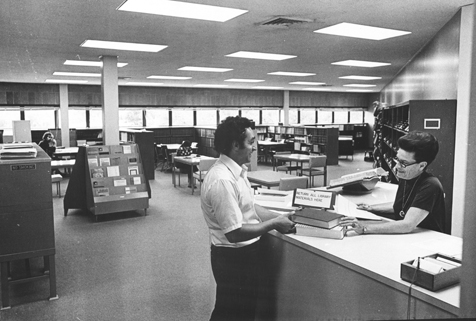
Faculty Research 1970 - 1979
Failure to relate the anti-tumour action of cyclophosphamide with the immunogenicity of two murine fibrosarcomas.
Document Type
Article
Publication Date
1978
Keywords
Cyclophosphamide: tu, Fibrosarcoma: dt, im, rt, Immunosuppression, Male, Mice, Mice-Inbred-CBA, Mice-Inbred-C57BL, Neoplasm-Transplantation, Neoplasms-Experimental: dt, im, rt, Time-Factors
First Page
611
Last Page
616
JAX Source
Int-J-Cancer. 1978 May 15; 21(5):611-6.
Abstract
A single intraperitoneal injection of cyclophosphamide (CY) had a stronger anti-tumour effect upon two syngeneic mouse fibrosarcomas when given within a few days of tumour implantation than when given 7-20 days after. CY was more active against the fast-growing, relatively non-immunogenic CBA fibrosarcoma, FS13, inducing a higher proportion and permanent regressions, than the slower-growing, highly immunogenic C57BL fibrosarcoma, FS6, at all comparable stages of tumour growth. Whole-body irradiation, which suppressed concomitant immunity in FS6-tumour-bearing mice, had no effect on the anti-tumour action of CY. A study of the cellular composition of the tumour masses over a 4-day period immediately after CY injection showed that there was a decrease in total cell yields, involving mainly a decrease in neoplastic cells, although normal cells, Fc-receptor-positive and -negative, were also affected to a lesser degree. The overall findings indicated a lack of correlation between the anti-tumour effects of CY and tumour immunogenicity. Moreover, it was apparent that the anti-tumour action of CY was mediated by a direct effect of its metabolites on neoplastic cells rather than by host anti-tumour effector mechanisms.
Recommended Citation
Evans R.
Failure to relate the anti-tumour action of cyclophosphamide with the immunogenicity of two murine fibrosarcomas. Int-J-Cancer. 1978 May 15; 21(5):611-6.

